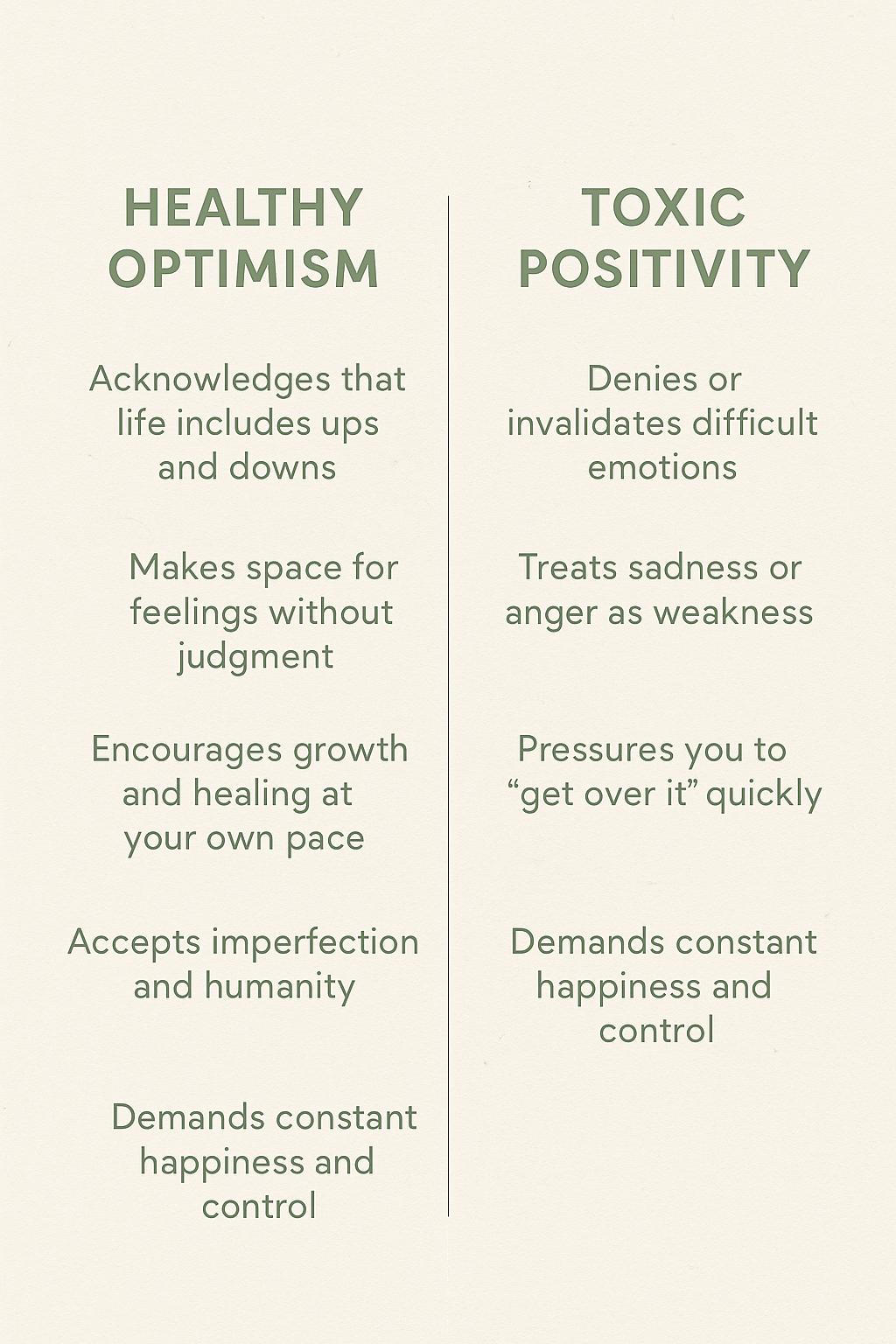You Don’t Have to Be “Fine”: The Pressure to Be Emotionally Okay All the Time
If you ask someone in Toronto how they’re doing, odds are you’ll hear the same answer:
“Good! Just busy.”
Or the classic:
“I’m fine.”
We say it automatically, even when we’re anything but.
In a world where wellness trends tell us to “choose positivity” and “manifest good vibes only,” it can feel like there’s no room for sadness, stress, or even plain old meh days. But here’s the truth: you don’t have to be fine all the time.
And pretending you are might be doing more harm than good.
.png)
The Hidden Weight of “Fine”
There’s a quiet pressure that comes with constant positivity. It’s not just about smiling through a bad day — it’s about believing you should be okay, even when you’re not.
Maybe you’ve caught yourself saying things like:
- “I have no reason to feel this way.”
- “I should be grateful — other people have it worse.”
- “If I think positive, this feeling will go away.”
This mindset, often called toxic positivity, turns natural human emotions into something we feel guilty for having. Instead of helping, it teaches us to suppress what we really feel — and that emotional backlog doesn’t disappear. It builds.
Why We Feel the Need to Be Okay
For many of us, especially those living in fast-paced cities like Toronto, “fine” has become a social script. We wear emotional stability like a badge of honour.
There are a few reasons why:
- We fear being a burden.
You don’t want to “bring down the mood,” so you minimize your feelings. - We link success to control.
If you appear calm, composed, and “fine,” it means you’re handling life — even when it’s handling you. - Social media sells constant happiness.
The internet rewards smiles, not honesty. You scroll through endless images of thriving, glowing people and think: Why can’t I feel like that too?
But here’s what’s missing from that narrative: everyone struggles. The most grounded people you know have bad days — they’ve just learned to move through them, not around them.

The Emotional Cost of Always Being “Fine”
When we keep saying “I’m fine,” we often start to believe it.
But the body doesn’t forget.
Suppressing emotions for too long can show up as:
- Physical exhaustion or chronic tension
- Irritability and short temper
- Difficulty connecting with others
- Feeling numb or detached
- Anxiety that doesn’t seem to have a clear cause
You might even notice yourself performing “okayness” — smiling at work, socializing just enough, but feeling emotionally hollow. It’s like living behind glass.
Therapy as a Safe Space to Be Unfine
One of the most healing parts of therapy is that you don’t have to perform.
You can walk into the room (or log into the session) and say, “Actually, I’m not fine.” And that’s enough.
At KMA Therapy, we see clients who look perfectly put-together from the outside — thriving careers, strong relationships, full lives — yet internally, they’re running on fumes. Therapy offers the space to slow down, name what’s really going on, and start to rebuild from a place of honesty.
Our therapists help you:
- Recognize the signs of emotional suppression.
- Build emotional literacy — learning to name, understand, and express what you feel.
- Challenge the inner voice that says “you should be fine.”
- Develop healthy coping strategies for stress, anxiety, and overwhelm.
Because healing doesn’t mean erasing discomfort — it means learning to hold it gently.
.png)
Relearning What “Okay” Means
Part of emotional growth is expanding what “okay” even looks like.
Sometimes being okay means:
- Crying after holding it in for weeks.
- Saying no to something you “should” want.
- Taking time to rest without explaining why.
- Letting others see you when you’re struggling.
These aren’t signs of weakness — they’re acts of emotional honesty.
Letting Go of the Pressure
The pressure to be emotionally okay all the time isn’t sustainable.
Humans are wired for the full emotional range — joy, sadness, fear, love, frustration, hope. You don’t have to censor your feelings to be strong.
The next time someone asks how you are, you can pause and answer truthfully — even if your truth is, “I’m tired,” or “I’ve been better.”
Sometimes, that honesty is the first step toward real healing.
.png)
🌿 You don’t have to be fine alone.
If you’re ready to stop pretending everything’s okay and start feeling better for real, KMA Therapy can help.






